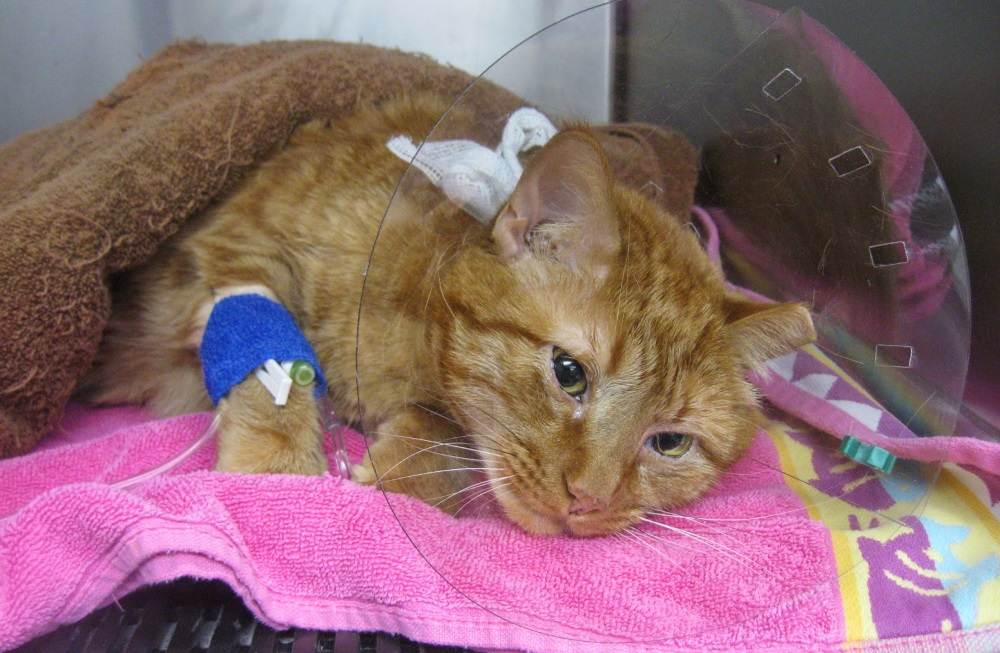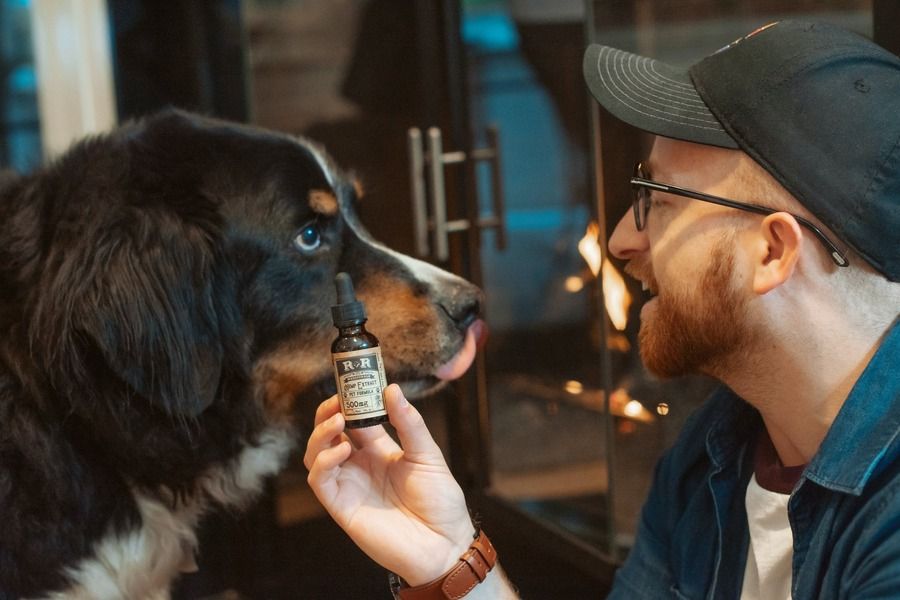Cancer is one of the most feared diseases affecting cats. It lowers the cat’s quality of life because your pet has to live with sores, lumps, and pain. Many conventional medications are available to relieve these symptoms. However, most available pharmaceutical remedies have numerous adverse side effects.
Fortunately, pet owners can try more friendly natural alternatives, such as CBD for cats with cancer. CBD has sparked medical researchers’ attention, especially due to its anti-cancer potency in humans and pets. Besides, many pet owners are turning to CBD solutions to relieve their cats’ cancer symptoms.
Our post explores CBD’s anti-cancer effect on cats. Remain on this page to discover how it can help your cat live better despite its serious health condition.
Types of Cat Cancer
Cats can suffer from different types of cancer. But despite the cancer type, you must diagnose it before getting the right treatment. So, how can you be sure your cat has cancer?
It would be best to visit your vet to stage a diagnosis process involving several diagnostic measures like X-rays, biopsies, bloodwork, and ultrasound. These diagnostic processes guarantee accurate results for easier treatment and progression estimation. Below are the common types of cat cancer you may encounter.
- Lymphoma. This condition is cancer that affects your cat’s blood cells or lymphocytes and lymphoid in cats aged between 2 and 6 years.
- Feline Leukemia Virus (FeLV). This cancer is the second-largest death cause among cats after trauma. It kills between 70 and 85 % of affected cats within three years after diagnosis.
- Mammary (Breast) Cancer. This cancer usually affects older female cats, but it rarely affects males. You can spay your cat to reduce the risk of getting breast cancer.
- Skin Cancer. Excess exposure to the sun can cause this cancer. An affected cat has lumps, redness, bumps, and scratches in its hairless regions.
- Fibrosarcoma. This cancer is a malignant tumor near a cat’s bone ends.
Cancer Symptoms in Cats
A cat with cancer may manifest different symptoms. Here are the main cancer signs to look out for in your pet.
- Breathing difficulties. If you notice your cat has breathing difficulties, it could be cancer that has blocked its breathing airways. It’s best to see a vet and get a timely diagnosis.
- Defecating challenges. Constipation can cause defecating difficulties. However, it could be symptomatic of another underlying health issue, including cancer.
- Difficulties with eating or swallowing. Eating or swallowing difficulties could indicate that your cat suffers from cancer. An affected cat struggles to open its mouth, hold the food in the mouth, collect food on its mouth’s sides, or throw its head backward while eating.
- Urinating difficulties. Is your feline experiencing urinating difficulties? It might have cancer, although other diseases could cause it. So, take it for a diagnosis to be sure it’s cancer or not.
- Lethargy. A cat with cancer is always tired. However, other diseases could still cause this symptom. If you notice your feline friend is abnormally tired and doesn’t want to play anymore, it could be cancer.
- Reduced appetite. Reduced appetite could point to cat cancer. This reduced appetite can make your cat lose weight due to a gastrointestinal tumor.
- Offensive odor. Your cat might have cancer if it keeps producing a foul smell. This odor might mean the cat has a tumor or mouth or nose cancer. Offensive odor indicates that the cancer sores aren’t healing and need more expert inspection.
- Pain. Cancer isn’t the only cause of pain in cats. However, if it persists, visit a vet to confirm or rule out cancer.
- Persistent swelling. Persistent swelling is a cancer sign. Take your cat for a medical examination.
- Continued lameness or stiffness. Some older cats suffer stiffness and lameness more than younger ones due to arthritis. However, the pain could be due to cancer.
- Weight loss. A cat with cancer losses weight because of reduced food intake. Take your pet for a medical examination if this condition persists.
- Overdrinking water. While a healthy cat should take enough water, a sudden rise in water consumption indicates a disease, including cancer.
- Fever. Cats suffering from cancer experience high fevers. Normal cat body temperature should range between 100.4 and 102.5 degrees Fahrenheit. If your cat’s temperature hits 106 degrees, it’s at risk and needs immediate medical attention.
- Anemia. Persistent anemia could indicate that your cat is suffering from cancer.
- Bleeding. A cat can bleed or have discharge happen where cats are injured and have internal health challenges. The cat could bleed from its vagina or mouth.
How CBD Fights Cat Cancer
So, how does CBD fight cat cancer? By fighting tumor cell development and expansion. CBD also helps destroy cancer cells, giving your affected cat much-needed relief. Cannabis and CBD compounds boost cancer cell death rates without harming healthy cells.
It’s worth noting that CBD boosts the cat’s immunity by empowering the white blood cells to promote the death of affected cells. It also eliminates and cripples cancerous cells by disrupting their energy production mechanisms, which enable them to kill healthy body cells. Lastly, CBD’s anti-cancer ability hinders and delays cancer cells’ uncontrollable growth.

Dosing CBD Oil for Felines with Cancer
We come to one of the most critical CBD dimensions—administration. Everything has its limits, and failing to administer a cancer remedy properly could be counterproductive. Understanding CBD dosage is just as important as understanding its benefits.
First, consider different factors before determining the exact dosage from the beginning and as you progress. While CBD helps relieve cancer-affected cats, its exact dosage varies. For instance, the cat’s body weight will determine how much you need to give your feline. You must also pay attention to the cat’s body needs before settling for an exact dosage because cancer is a highly aggressive condition.
Second, you must consider your cat’s cancer severity. You can begin treatment at different severity levels. If you discovered your cat’s cancer in its initial stages, the dosage requirements wouldn’t be as intensive as if you discovered it in its advanced stages.
Based on these dynamics, we recommend talking to your cat’s vet before proceeding with dosage. Their advice can help you administer your CBD solution more effectively.
As a rule, proper cancer dosage can range from 35-50mg. You can split this dosage into three daily bits because CBD oil stays in the cat’s body for 6-8 hours. Also, it takes some two hours before starting to have a peak impact.
We recommend frequent and sufficient dosing, which is ideal for making your feline comfortable all day. You may also administer CBD oil for cat cancer right before meals for optimal benefit. Ensure your cat perceives the CBD administration routine positively and give it the much-needed affection after administering it. This way, dosage administration becomes pleasant, easy, and simple for you and your cat in the long term.
Bottom Line
Cancer is a dreaded disease pet owners fear for their feline friends. Any cat can get cancer and experience reduced quality of life. Thankfully, CBD is one of the most effective natural remedies for improving your ailing cat’s quality of life. We hope the insights we shared in this article will help you give your cat the best cancer care it deserves.









